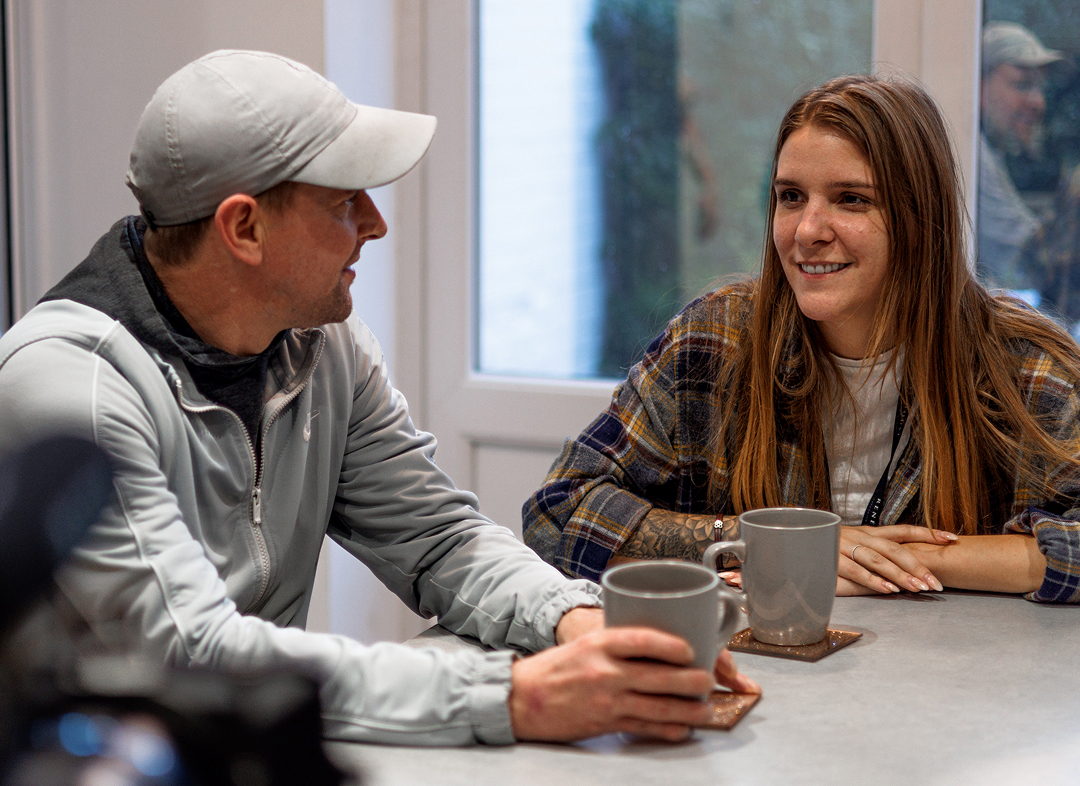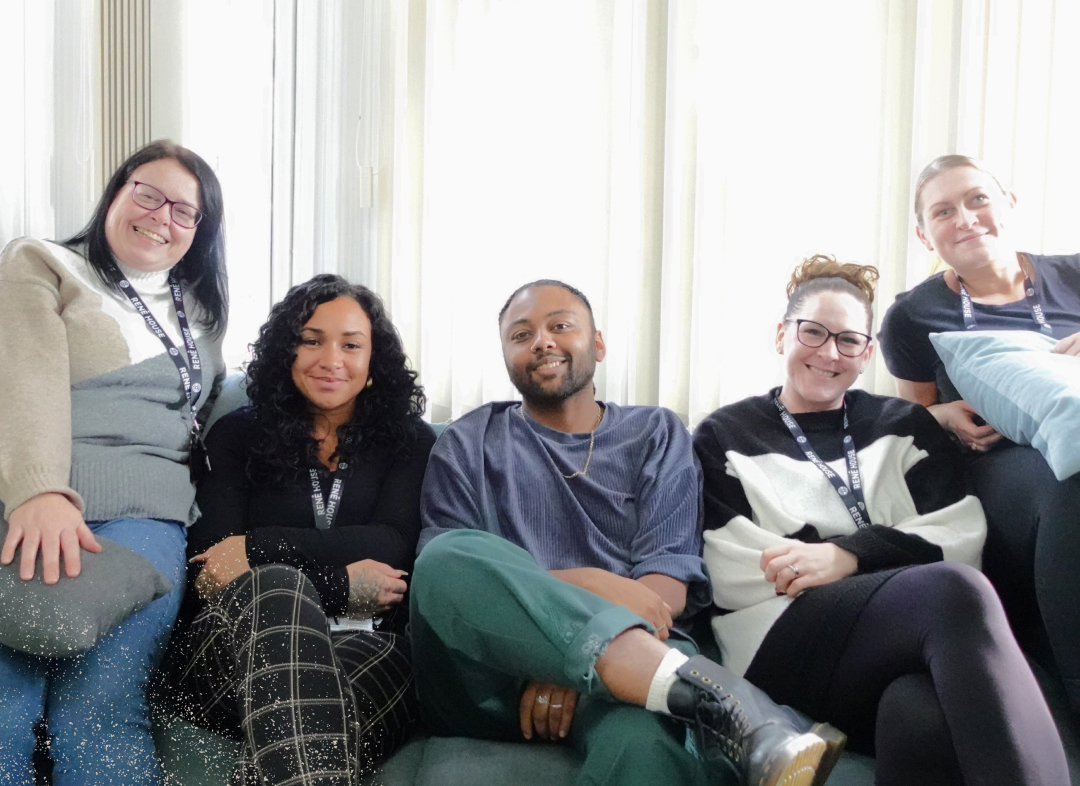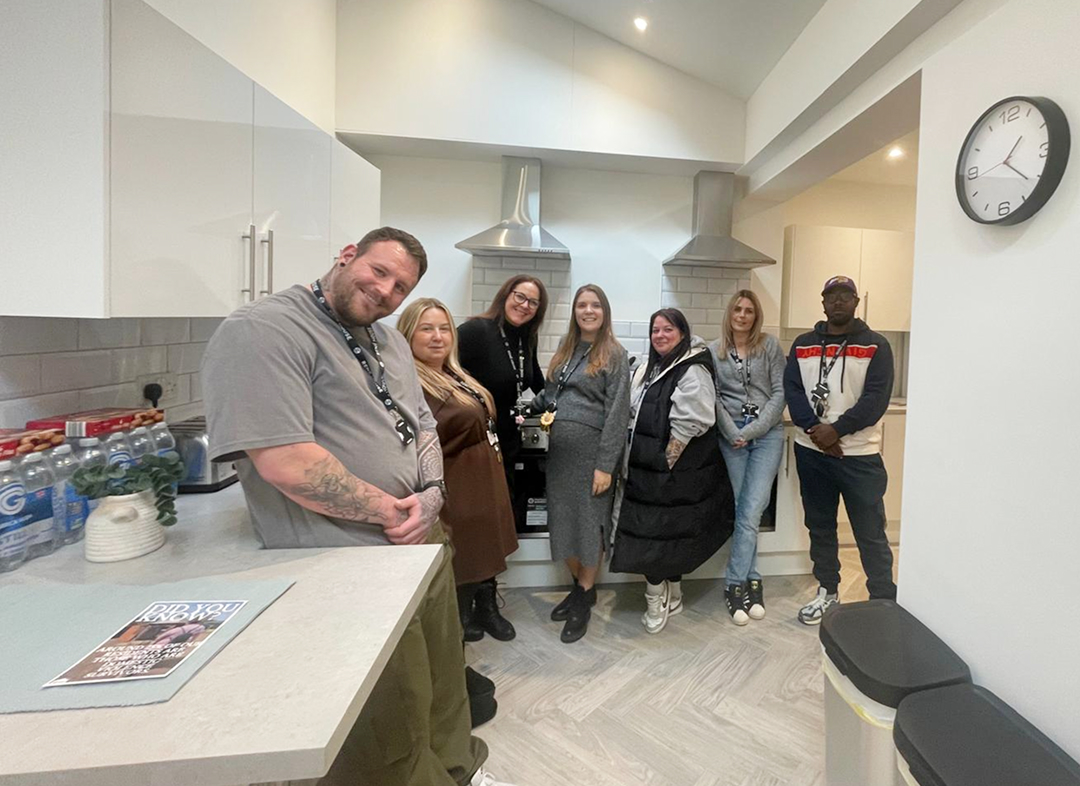More Than Just a Roof – Mental Health's Critical Role in Supported Housing
With 45% of homeless people facing mental health challenges, our most important work often happens over cooking sessions, games of pool, and everyday moments that don't look like 'support' from the outside, but create genuine stability from within.

Mental wellbeing is such an important topic for us as supported accommodation providers, not just during Mental Health Awareness Week, but every single day of the year.
According to Shelter, 45% of people experiencing homelessness have been diagnosed with a mental health issue – a statistic that doesn't surprise those of us working directly with residents. The real number is likely even higher when accounting for undiagnosed conditions.
At René House, we've seen firsthand how the changing landscape of homelessness and housing support has shifted dramatically in recent years, with mental health moving from just one aspect of our work to becoming the primary need for many residents.
A Rise in Mental Health Needs.
As our Services Manager Kelsey recently shared over on our socials, "Last year we noticed a rise in people struggling with their mental health. That was quite a stark change."
This observation isn't isolated. Across our properties, our team has witnessed what our MD Theo describes as "exponential growth in the level of support that people require, especially when it comes to mental health and financial issues."
Where our support sessions would once be primarily focused on practical things like budgeting, job searching, and finding permanent housing, we're now finding that mental health support often needs to come first before these other areas can even be addressed.
The Cycle of Housing Instability and Mental Health Issues.
One of the most challenging aspects of our work is addressing the complex relationship between housing and mental health.
It's rarely as simple as "homelessness causes poor mental health" or "mental health issues lead to homelessness." Instead, we see a cyclical relationship where each can trigger or worsen the other.
"For some people it's around mental health or addiction issues. And sometimes it's just that they can't afford to rent anywhere, which then affects their mental wellbeing," explains Tiffany, our co-founder.
What might start as trouble paying rent can quickly spiral into isolation and serious wellbeing issues. The stress of housing insecurity creates or amplifies anxiety and depression, which in turn can make it harder to maintain employment or relationships – further threatening housing stability.
Breaking this cycle requires intervention that addresses both housing and mental health simultaneously, something traditional housing or mental health services often struggle to do in isolation.
Support That Meets People Where They Are.
So how does René House approach this growing need? Our support strategy combines formal support with everyday moments of connection, making the support work for each unique residents and meeting them where they are.

Professional support pathways
We've developed strong relationships with mental health services across the Nottinghamshire area, allowing us to connect residents with appropriate professional support, such as:
- Talking therapies and counseling services
- Specialist mental health teams
- Community mental health support
- Crisis services when needed
As Kelsey notes, "Luckily we've got lots of people that are really helpful for us to signpost to, and a lot of people are in talking therapies now, which is really good."
.png)
Everyday support
But often, it's the less formal support that actually creates the biggest impact:
Creating natural spaces for conversation – "We're doing a lot of going out to play pool, bowling, walking, cooking. As much as they're life skills, it gives people room to talk about things they don't talk about very often," Kelsey explains. "Once you're in a car and you don't have to look at someone, it's a lot easier to say what you've got going on."
Practicing patience – "People act out in different ways which sometimes can be breaking the rules, but it could possibly be something to do with their mental health. So there's a lot of patience needed by the support workers," shares Kelsey.
Focus on foundations – "They're doing a lot of mindfulness things - we're talking about people's sleeping patterns and helping them understand how much sleep affects your mental health day in, day out."
These approaches might not look like 'mental health support' from the outside, but they really help our residents open up, build trusting relationships with our support team, and work through their challenges.
Appreciating How Close We Are to Housing Insecurity.
A big part of our approach comes from understanding that the line between stability and instability is thinner than most people realise...
As Theo says, "In reality most people will know someone who has been an ex-offender, who has struggled with substances, or gambling, or has financial issues, or mental health. All of these, either individually or collectively, are contributing factors towards people ending up homeless."
This perspective – that most of us aren't as far from homelessness as we might think – shapes how we work with our residents. We see beyond those immediate circumstances, their past mistakes, their challenges, to the person underneath. Good people can face tough barriers and make mistakes too.
"The sooner that we all realise that most of us are not as far away from homelessness as we think we are... I don't think that's a thing that we should be scared of, but I think it's a thing that we should use to have a little bit of appreciation for people's struggles."
What Needs to Change?
As we continue to adapt our approach to meet the growing mental health needs of our residents, we think that broader systemic changes are definitely needed to improve the big issue of mental health:
Integration of services - Housing, mental health, and financial support services need to work more closely together, as these issues rarely exist in isolation.
Preventative approaches - Earlier intervention before housing insecurity develops into homelessness could prevent the trauma that often accompanies losing your home.
Recognition of the link - Policy makers need to understand the cyclical relationship between housing and mental health, ensuring that strategies to address either issue consider their interdependence.
Funding for holistic support - The type of wrap-around support that addresses both practical needs and mental wellbeing requires sustainable funding models to tackle this complexity.
Mental Health Support IS Housing Support
As we reflect on the progress made ,and awareness raised, during the Mental Health Association's 'Mental Health Awareness Week', it's become increasingly clear to us that mental health support isn't an add-on to our housing work, it's absolutely fundamental to it.
The most important work we do often isn't putting a roof over someone's head. It's the invisible support our team provides that helps residents rebuild from within, creating a foundation for sustainable independence that's as much about inner stability as it is about physical shelter.
If you or someone you know is struggling with housing and mental health challenges, please reach out. Support is available, and recovery is possible.

Join Our Team – Homelessness Support Worker Opportunities in Nottingham
We're growing our support team, and we're on the lookout for a compassionate Homelessness Support Worker to join us in Nottingham. If you've ever thought about a career that genuinely changes lives, this might be exactly what you're looking for...

Why We Can't Solve Homelessness Alone (And Don't Want To)
We are proud to collaborate with local authorities, charities, and community organisations to address homelessness across Nottingham. Learn more about our community partnership approach to supported accommodation, and why it's so necessary to fight homelessness in our community.


